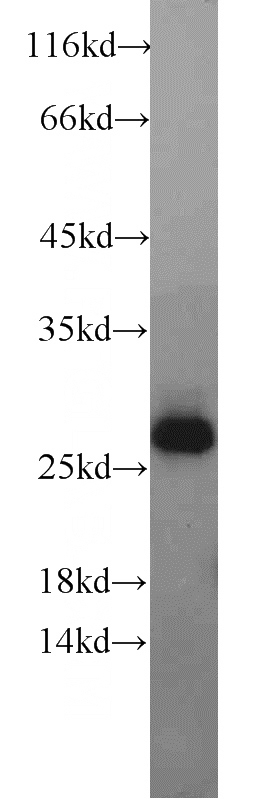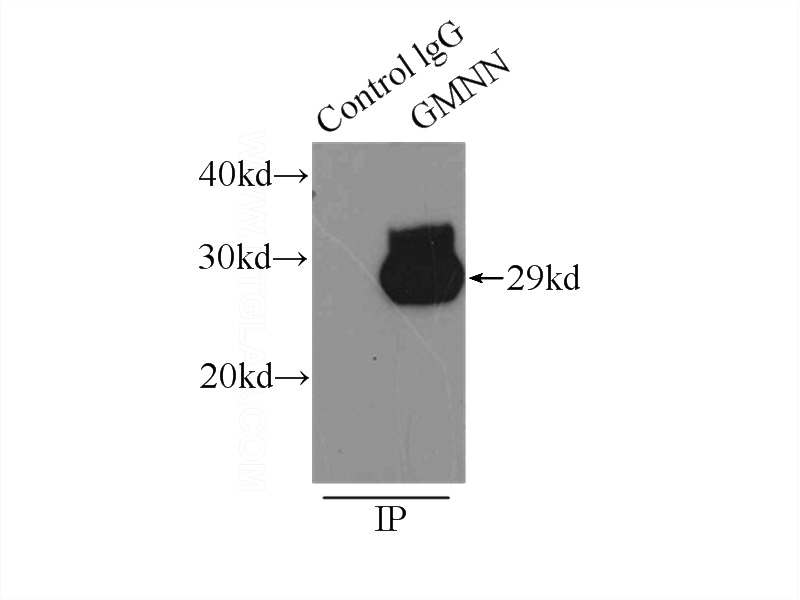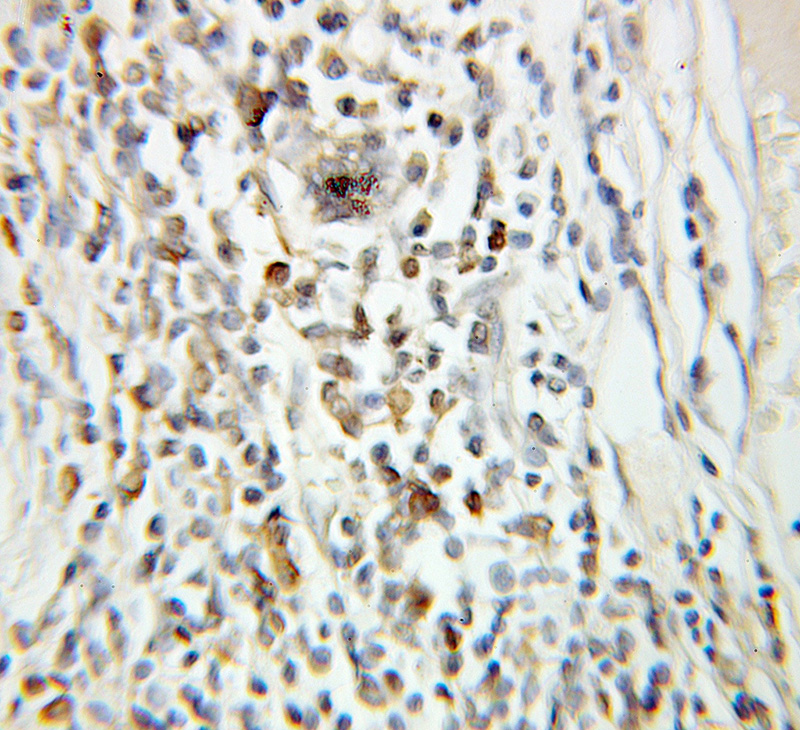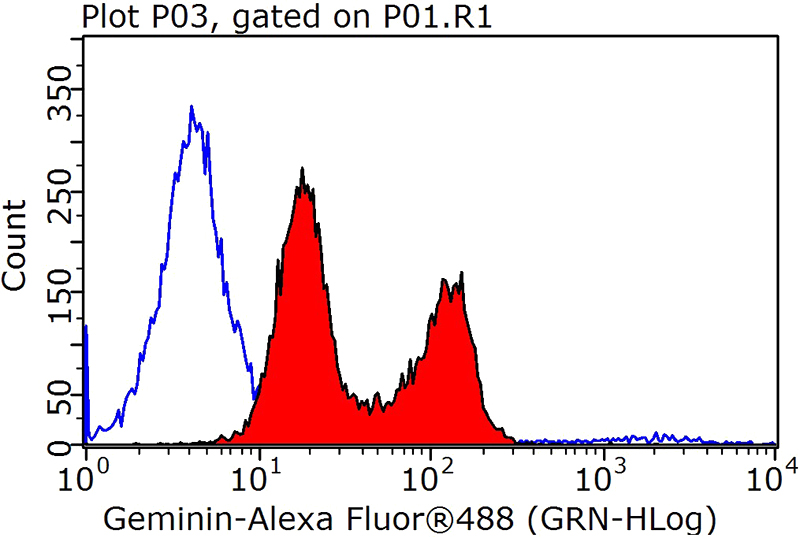-
Product Name
Geminin antibody
- Documents
-
Description
Geminin Rabbit Polyclonal antibody. Positive WB detected in human testis tissue, HEK-293 cells, HeLa cells, mouse testis tissue, rat testis tissue. Positive IP detected in HEK-293 cells. Positive IHC detected in human breast cancer tissue, human colon cancer tissue. Positive FC detected in MCF-7 cells. Observed molecular weight by Western-blot: 28-29 kDa
-
Tested applications
ELISA, WB, IP, FC, IHC
-
Species reactivity
Human,Mouse,Rat; other species not tested.
-
Alternative names
Gem antibody; Geminin antibody; GMNN antibody; RP3 369A17.3 antibody
- Immunogen
-
Isotype
Rabbit IgG
-
Preparation
This antibody was obtained by immunization of Geminin recombinant protein (Accession Number: NM_015895). Purification method: Antigen affinity purified.
-
Clonality
Polyclonal
-
Formulation
PBS with 0.1% sodium azide and 50% glycerol pH 7.3.
-
Storage instructions
Store at -20℃. DO NOT ALIQUOT
-
Applications
Recommended Dilution:
WB: 1:500-1:5000
IP: 1:500-1:5000
IHC: 1:20-1:200
-
Validations

human testis tissue were subjected to SDS PAGE followed by western blot with Catalog No:110942(GMNN antibody) at dilution of 1:300

IP Result of anti-GMNN (IP:Catalog No:110942, 4ug; Detection:Catalog No:110942 1:1000) with HEK-293 cells lysate 4500ug.

Immunohistochemical of paraffin-embedded human breast cancer using Catalog No:110942(GMNN antibody) at dilution of 1:100 (under 10x lens)

1X10^6 MCF-7 cells were stained with 0.2ug GMNN antibody (Catalog No:110942, red) and control antibody (blue). Fixed with 90% MeOH blocked with 3% BSA (30 min). Alexa Fluor 488-congugated AffiniPure Goat Anti-Rabbit IgG(H+L) with dilution 1:1000.
-
Background
GMNN, also designated geminin, contains 212 amino acids and has a destruction box sequence (RRTLKVIQP). GMNN participates in ininhibiting DNA replication by preventing the incorporation of MCM complex into pre-replication complex (pre-RC). It is degraded during the metaphase-anaphase transition of cell cycle's mitotic phase, which permits replication in the succeeding cell cycle. GMNN has a broad sedimentation profile ranging from about 25 kDa to 90 kDa, with a major peak at 30 kDa. Scanning of the signals shows that discrete peaks corresponding to apparent mass of 42.5 kDa and 66 kDa are present. (PMID: 15313623)
-
References
- Graeser M, McCarthy A, Lord CJ. A marker of homologous recombination predicts pathologic complete response to neoadjuvant chemotherapy in primary breast cancer. Clinical cancer research : an official journal of the American Association for Cancer Research. 16(24):6159-68. 2010.
- Naipal KA, Verkaik NS, Ameziane N. Functional ex vivo assay to select homologous recombination-deficient breast tumors for PARP inhibitor treatment. Clinical cancer research : an official journal of the American Association for Cancer Research. 20(18):4816-26. 2014.
- Tomono A, Itoh T, Yanagita E, Imagawa N, Kakeji Y. Cell cycle kinetic analysis of colorectal neoplasms using a new automated immunohistochemistry-based cell cycle detection method. Medicine. 94(4):e501. 2015.
- Waddell N, Pajic M, Patch AM. Whole genomes redefine the mutational landscape of pancreatic cancer. Nature. 518(7540):495-501. 2015.
- Cates JM, Memoli VA, Gonzalez RS. Cell cycle and apoptosis regulatory proteins, proliferative markers, cell signaling molecules, CD209, and decorin immunoreactivity in low-grade myxofibrosarcoma and myxoma. Virchows Archiv : an international journal of pathology. 467(2):211-6. 2015.
- Chatalic KL, Konijnenberg M, Nonnekens J. In Vivo Stabilization of a Gastrin-Releasing Peptide Receptor Antagonist Enhances PET Imaging and Radionuclide Therapy of Prostate Cancer in Preclinical Studies. Theranostics. 6(1):104-17. 2016.
Related Products / Services
Please note: All products are "FOR RESEARCH USE ONLY AND ARE NOT INTENDED FOR DIAGNOSTIC OR THERAPEUTIC USE"
